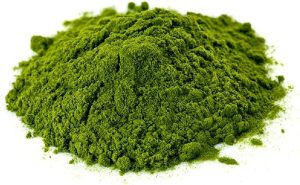
- Overview of Apple Fibre
- Brief History of Apple Fibre
- Functions of Apple Fibre
- Recommended Daily Intake (RDI), Recommended Dietary Allowance (RDA), Adequate Intake (AI), or Reference Nutrient Intake (RNI) for Apple Fibre
- Deficiency of Apple Fibre
- Food Sources of Apple Fibre and Where to Get It From
- Apple Fibre and Its Interaction with Other Medications
- Websites and Articles to Delve into the Benefits of Apple Fibre
- Disclaimer
Overview of Apple Fibre
Apple fiber, derived from the popular fruit, is a rich source of dietary fiber, encompassing both soluble and insoluble components. With the majority located in the apple’s skin, this fiber offers numerous health benefits.
- Soluble fiber, notably pectin, aids in digestive health, supporting regular bowel movements and fostering a balanced gut microbiome.
- The insoluble fiber in apple skin contributes to bulkier stools, promoting gastrointestinal well-being.
Beyond its fiber content, apples provide essential vitamins, minerals, and antioxidants. Apple fiber’s soluble nature, specifically pectin, is associated with potential blood sugar regulation, making it advantageous for individuals managing diabetes. Additionally, some studies suggest a role in cholesterol management. As a low-calorie, nutrient-dense snack, apple fiber contributes to overall wellness and is easily incorporated into a balanced diet.
Brief History of Apple Fibre
The history of apple fiber is intertwined with the cultivation and consumption of apples, one of the oldest and most widely cultivated fruits. While specific historical details about apple fiber may not be well-documented, the broader history of apples provides context:
- Ancient Origins:
- Apples have ancient origins, with evidence of their consumption dating back thousands of years. The domestication of apples likely began in Central Asia.
- Cultural Significance:
- Apples have cultural significance in various societies and are mentioned in historical texts and folklore. The apple tree is often associated with mythology, including the biblical story of Adam and Eve.
- Spread of Cultivation:
- Over centuries, apples were cultivated and spread to different regions through trade and exploration. Different varieties emerged through selective breeding.
- Nutritional Awareness:
- As understanding of nutrition advanced, the focus on the health benefits of apples, including their fiber content, became more prominent.
- Dietary Fiber Research:
- In the 20th century, there was a growing awareness of the importance of dietary fiber in promoting overall health. Researchers began to study the specific types and benefits of fiber found in various foods, including apples.
- Modern Nutritional Science:
- With advancements in nutritional science, including the identification of soluble and insoluble fiber components, the nutritional benefits of apple fiber have been more thoroughly explored.
- Commercialization:
- In recent decades, the commercialization of apple fiber as a dietary supplement has become more prevalent. Apple fiber is now available in various forms, including powders and supplements.
While the specific history of apple fiber may not be extensively documented, the broader history of apples and the evolving understanding of nutrition have contributed to the recognition of apples, including their fiber content, as a valuable component of a healthy diet.
| Time Period | Milestone |
| Ancient Origins | Apples have ancient origins, with evidence of consumption dating back millennia. |
| Cultural Significance | Apples hold cultural significance in various societies and mythologies. |
| Spread of Cultivation | Apples were cultivated and spread globally through trade and exploration. |
| Nutritional Awareness | Focus on the health benefits of apples, including their fiber content, emerges. |
| Dietary Fiber Research | Research into the importance of dietary fiber in promoting health gains traction. |
| Modern Nutritional Science | Advancements in nutritional science lead to a deeper understanding of apple fiber. |
| Commercialization | Apple fiber becomes commercially available as a dietary supplement. |
Functions of Apple Fibre
Apple fiber, often found in the skin of apples, is a type of dietary fiber that offers various health benefits. Here are some functions of apple fiber:
- Digestive Health:
- Apple fiber is a soluble fiber that can aid in maintaining a healthy digestive system. It helps prevent constipation by adding bulk to the stool and promoting regular bowel movements.
- Weight Management:
- The fiber in apples can contribute to a feeling of fullness, which may help in controlling appetite and managing weight. It slows down the digestion process, leading to a more gradual release of sugars into the bloodstream and preventing rapid spikes in blood sugar levels.
- Blood Sugar Regulation:
- The soluble fiber in apples, specifically pectin, may assist in regulating blood sugar levels. It can slow the absorption of sugar, helping to stabilize blood glucose levels and reducing the risk of insulin spikes.
- Cholesterol Reduction:
- Some studies suggest that soluble fiber, such as pectin in apple fiber, may help lower LDL cholesterol levels. By binding to cholesterol and removing it from the body, apple fiber can contribute to cardiovascular health.
- Colon Health:
- Apple fiber may contribute to a healthy colon by promoting the growth of beneficial bacteria. This can help maintain a balanced and thriving gut microbiome, which is crucial for overall digestive health.
- Antioxidant Properties:
- Apples, including their fiber, contain antioxidants that can help neutralize harmful free radicals in the body. Antioxidants play a role in reducing oxidative stress and inflammation, contributing to overall health.
- Immune Support:
- The combination of vitamins, minerals, and antioxidants found in apple fiber can support the immune system, helping the body defend against infections and illnesses.
- Heart Health:
- By positively influencing cholesterol levels, blood pressure, and inflammation, apple fiber can contribute to heart health. A healthy cardiovascular system is vital for overall well-being.
It’s important to note that the benefits of apple fiber are best obtained by consuming whole apples, as the fiber is present in the skin and pulp. Processing apples into juices or applesauce may reduce the fiber content. As with any dietary component, moderation is key, and it’s advisable to consult with a healthcare professional or nutritionist for personalized advice.
Recommended Daily Intake (RDI), Recommended Dietary Allowance (RDA), Adequate Intake (AI), or Reference Nutrient Intake (RNI) for Apple Fibre
The Recommended Dietary Allowance (RDA) and Adequate Intake (AI) values are typically set for essential nutrients like vitamins and minerals, rather than dietary fibers, therefore, there isn’t a specific Recommended Dietary Allowance (RDA) or Adequate Intake (AI) established specifically for apple fiber.
For dietary fiber in general, including that from apples, the recommended intake varies by age, gender, and life stage. In the United States, the Dietary Guidelines for Americans suggest the following daily fiber intake:
- Men (ages 19-50): 38 grams per day
- Women (ages 19-50): 25 grams per day
These values are based on the total intake of dietary fiber from all sources, including fruits, vegetables, whole grains, and legumes. Keep in mind that individual needs may vary, and specific health conditions or goals may require adjustments to these recommendations.
It’s essential to consume a variety of foods to ensure a well-rounded intake of different types of fiber and other nutrients. If you have specific dietary concerns or health conditions, it’s advisable to consult with a healthcare professional or a registered dietitian for personalized recommendations. Additionally, nutrition guidelines and recommendations may be updated, so it’s a good idea to check with more recent sources for the latest information.
Deficiency of Apple Fibre
While there isn’t a recognized condition specifically termed “apple fiber deficiency,” a deficiency in dietary fiber, in general, can have adverse effects on health. Apple fiber, found primarily in the skin and pulp of apples, contributes to the overall fiber intake. Here are some potential consequences of a low-fiber diet:
- Digestive Issues:
- Insufficient fiber intake can lead to constipation and irregular bowel movements. Fiber adds bulk to stool, making it easier to pass through the digestive system.
- Weight Management:
- Fiber helps create a feeling of fullness, aiding in appetite control. Inadequate fiber intake might contribute to overeating and difficulties in managing body weight.
- Blood Sugar Control:
- Fiber, particularly soluble fiber like pectin found in apples, can help regulate blood sugar levels. A lack of fiber might contribute to unstable blood sugar levels, potentially increasing the risk of insulin resistance.
- Cholesterol Levels:
- A diet low in fiber may be associated with higher LDL cholesterol levels. Soluble fiber, such as that found in apples, can help lower cholesterol by binding to it and aiding in its elimination from the body.
- Cardiovascular Health:
- Insufficient fiber intake has been linked to an increased risk of cardiovascular disease. Adequate fiber intake is associated with lower blood pressure and reduced inflammation.
- Gut Health:
- Fiber promotes a healthy gut microbiome by providing fuel for beneficial gut bacteria. A lack of fiber may negatively impact the balance of gut bacteria, potentially leading to gastrointestinal issues.
- Increased Risk of Chronic Diseases:
- Low-fiber diets have been associated with an increased risk of various chronic diseases, including colorectal cancer, type 2 diabetes, and certain cardiovascular conditions.
To prevent deficiencies, it’s crucial to maintain a well-balanced diet that includes a variety of fruits, vegetables, whole grains, legumes, and other fiber-rich foods. Apples, with their combination of soluble and insoluble fiber, can be a nutritious addition to a balanced diet.
If someone is consistently experiencing symptoms related to poor fiber intake or if they have concerns about their nutritional status, it’s advisable to consult with a healthcare professional or a registered dietitian for personalized guidance.
Food Sources of Apple Fibre and Where to Get It From
Apple fiber is primarily found in the skin and pulp of apples. Including whole apples in your diet is an excellent way to obtain this dietary fiber. Here are some tips on incorporating apple fiber into your meals:
- Eat Whole Apples:
- Consuming whole apples is the most direct way to get apple fiber. Choose a variety of apples, including red, green, or yellow, as different types may have slightly different nutrient profiles.
- Add Apple Slices to Snacks:
- Slice apples and enjoy them as a snack on their own or pair them with nut butter for a satisfying and nutritious snack.
- Include Apples in Salads:
- Add apple slices to your salads for a sweet and crunchy element. Apples pair well with various greens, nuts, and cheeses.
- Blend Them Into Smoothies:
- Include whole apples (with skin) in your smoothies to boost the fiber content. You can also add yogurt, greens, and other fruits for a nutritious blend.
- Bake with Apples:
- Incorporate apples into your baking by adding them to muffins, cakes, or bread. This allows you to enjoy the fiber while also benefiting from the natural sweetness and flavor of apples.
- Make Homemade Applesauce:
- While applesauce may have less fiber than whole apples, it still provides a good source of dietary fiber. Make your own applesauce at home to control the ingredients and retain more fiber by including the skin.
- Use Apple Fiber Supplements:
- While it’s always preferable to obtain nutrients from whole foods, apple fiber supplements are available in the form of powders, capsules, or chewable tablets. However, it’s essential to consult with a healthcare professional before using supplements to ensure they are suitable for your individual needs.
When incorporating apples into your diet, consider choosing organic apples when possible, as conventionally grown apples may have pesticide residues on the skin. Washing and scrubbing apples thoroughly or peeling them can help reduce pesticide exposure.
Remember that a well-balanced diet includes a variety of fruits, vegetables, whole grains, and other fiber-rich foods to ensure you get a range of nutrients. If you have specific dietary concerns or health conditions, it’s advisable to consult with a healthcare professional or a registered dietitian for personalized recommendations.
Apple Fibre and Its Interaction with Other Medications
Apple fiber, like other dietary fibers, can have interactions with certain medications. While apples themselves are generally safe and healthy for most people, it’s important to be aware of potential interactions when consuming apple fiber supplements or concentrated forms of fiber. Here are some considerations:
- Drug Absorption:
- Fiber, including apple fiber, can interfere with the absorption of some medications. It may bind to the drugs and reduce their effectiveness. This is particularly relevant for medications that need to be absorbed in the gastrointestinal tract.
- Timing of Medication:
- If you are taking medications, it’s advisable to take them at least a few hours apart from consuming high-fiber foods or supplements. This can help minimize the potential interference with drug absorption.
- Blood Sugar Medications:
- Apple fiber, being a source of soluble fiber, can impact blood sugar levels. If you are taking medications for diabetes or blood sugar management, monitor your blood sugar levels closely and consult with your healthcare provider for any necessary adjustments to your medication.
- Thyroid Medications:
- Some studies suggest that high-fiber diets may affect the absorption of thyroid medications. If you take medications for thyroid conditions, it’s essential to maintain a consistent dietary fiber intake and inform your healthcare provider of any significant changes in your diet.
- Gastrointestinal Medications:
- If you are taking medications for gastrointestinal conditions, such as irritable bowel syndrome (IBS) or inflammatory bowel disease (IBD), the addition of fiber may have different effects. In some cases, it might be beneficial, while in others, it could exacerbate symptoms. Consult with your healthcare provider to determine the best approach for your specific condition.
Always consult with your healthcare provider or pharmacist if you have concerns about potential interactions between apple fiber or other dietary supplements and your medications. They can provide personalized advice based on your medical history, current medications, and individual health needs.
It’s important to note that obtaining fiber from whole foods like apples is generally considered safe and beneficial for health. However, if you are considering significant dietary changes or adding supplements, it’s wise to discuss these decisions with your healthcare team to ensure they align with your overall health goals and medical conditions.
Websites and Articles to Delve into the Benefits of Apple Fibre
Disclaimer
The information is solely provided for educational purposes. It is not intended to diagnose, treat, cure, or prevent any disease. Seek the advice of your physician or qualified healthcare provider with any questions you may have regarding a medical condition at all times. Never disregard professional medical advice because of something you have read or learned from this article.






